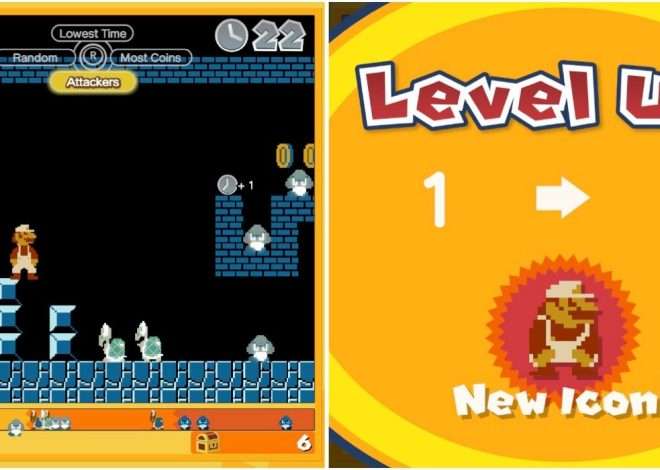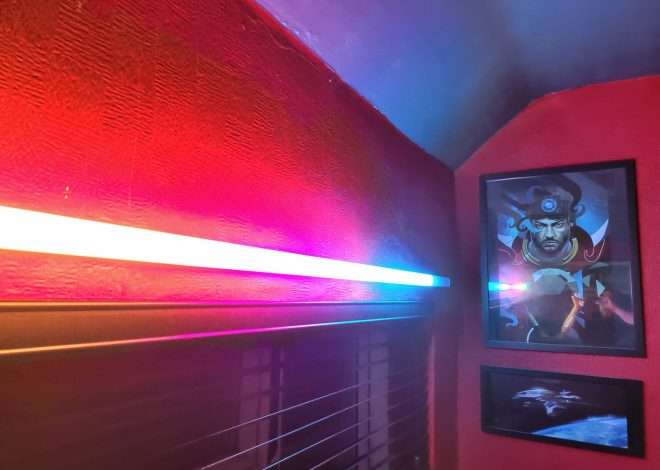Conquering Your Gaming Backlog: Strategies and Solutions
The average gamer has a daunting backlog of unfinished games. It’s a digital graveyard of potential fun‚ a monument to unfulfilled gaming promises. This feeling is incredibly common. This article explores the reasons behind this common gaming problem and offers solutions and resources to help you conquer your backlog and finally enjoy all those games gathering digital dust.
Understanding the Backlog Beast
Why do we amass such extensive collections of untouched games? Several factors contribute to this phenomenon. Firstly‚ the sheer volume of games released constantly bombards us with enticing titles. Sales and discounts further fuel this acquisition habit‚ leading to impulse purchases we rarely get around to playing. Secondly‚ the fear of missing out (FOMO) plays a significant role. We worry about missing a potentially incredible gaming experience if we don’t buy it immediately. This anxiety often overrides our ability to make rational purchasing decisions. Finally‚ limited time also prevents us from completing games. Life gets in the way – work‚ family‚ social commitments – leaving less time for leisurely gaming sessions.
The Psychology of Unfinished Games
Beyond the practical reasons‚ there’s a psychological aspect to unfinished games. The unfinished game represents an unfulfilled goal‚ a small failure that nags at the back of our minds. This can lead to feelings of guilt or inadequacy. It’s important to remember that this is a common experience; the key is to develop strategies to mitigate this feeling and turn it into a motivator for progress‚ not a reason for procrastination.
Strategies for Conquering Your Backlog
Tackling your backlog requires a structured approach. It’s not about playing every game immediately‚ but rather prioritizing and managing your gaming time effectively. Here are some effective strategies to help you conquer that ever-growing list of unplayed games.
Prioritization is Key
Instead of feeling overwhelmed by the sheer number of games‚ focus on prioritizing titles based on factors such as personal interest‚ time commitment required‚ and genre preference. Create a tiered system: “Must-Play‚” “Want-to-Play‚” and “Maybe-Later.” This allows you to focus your energy on the games that genuinely excite you‚ reducing the feeling of being swamped by choices. Consider using a spreadsheet or a dedicated app to track your progress and prioritize games effectively.
Time Management Techniques
Allocate specific timeslots for gaming. Scheduling gaming sessions like any other appointment helps ensure you dedicate time to playing‚ preventing games from being indefinitely postponed. Even short‚ 30-minute sessions can make a significant difference in your progress. Consistency is more important than long‚ infrequent gaming marathons. Remember to be realistic about the time you can realistically commit.
The Power of Realistic Goals
Setting realistic‚ achievable goals is crucial. Instead of aiming to complete a lengthy RPG in a week‚ set smaller‚ more manageable goals like completing a chapter or reaching a specific milestone. Breaking down large tasks into smaller‚ less daunting chunks makes progress feel more rewarding and less overwhelming. Celebrating these smaller victories fuels motivation and keeps you engaged.
Utilizing Technology to Track Your Progress
Numerous apps and websites are designed specifically to help gamers manage their backlogs. These tools provide various features to streamline the process‚ from adding games to your library to tracking your playtime and progress. They can significantly enhance your gaming experience and help you stay organized.
Popular Backlog Tracking Apps
- Backloggd: A comprehensive platform with a user-friendly interface‚ allowing you to categorize games‚ track playtime‚ and create wishlists.
- HowLongToBeat: This website provides estimated completion times for various games‚ helping you make informed decisions about prioritizing games based on your available time.
- Playnite: A powerful‚ open-source game library manager that can be customized extensively to suit individual needs. It supports a vast range of platforms and features.
- Steam’s built-in library: While not solely a backlog tracker‚ Steam’s library management features are robust‚ allowing you to organize and track your progress on games within the platform.
Creating Your Own Spreadsheet
If you prefer a more hands-on approach‚ creating your own spreadsheet can be a highly effective way to manage your backlog. You can customize columns to track various aspects of your games‚ including titles‚ platforms‚ genres‚ estimated playtime‚ start date‚ completion date‚ and personal ratings. This degree of customization can be particularly beneficial for those with highly specific needs.
Beyond the Games: Maintaining Motivation
Maintaining consistent progress requires more than just organization and planning. It also requires maintaining motivation and staying engaged with the process. Here are some tips to help you stay motivated and prevent your backlog from becoming an insurmountable mountain again.
Finding Your Gaming Tribe
Discuss your gaming progress with friends or join online communities centered around gaming. Sharing your experiences‚ getting recommendations‚ and discussing games with others can help you stay engaged and motivated. The social aspect of gaming can significantly enhance the overall experience and prevent feelings of isolation.
Don’t Be Afraid to DNF
Sometimes‚ a game simply isn’t for you. Don’t feel obligated to finish every game you start. Learning to recognize when a game isn’t enjoyable and moving on is a crucial part of managing your backlog. It’s better to focus your time on games you truly enjoy than force yourself to play something that you find tedious or uninteresting. This will help to prevent burnout and keep you motivated to play games you genuinely want to complete.
Reward Yourself
Celebrate your accomplishments! Finishing a game‚ no matter how small‚ should be rewarded. This could be anything from watching an episode of your favorite show to indulging in a delicious meal. Rewarding yourself reinforces positive behavior and helps maintain motivation throughout the process of conquering your backlog. It helps keep the experience fun and not a chore.
The Importance of Rest and Breaks
Gaming‚ like any other activity‚ requires breaks. Taking regular breaks prevents burnout and helps you approach your gaming sessions with renewed energy and enthusiasm. Don’t feel guilty about taking time off. Rest and relaxation are essential for maintaining a healthy gaming habit and preventing your backlog from becoming a source of stress instead of enjoyment.
Conquering your video game backlog is a marathon‚ not a sprint. It requires planning‚ organization‚ and a healthy dose of self-awareness. By implementing these strategies‚ prioritizing your games‚ and utilizing available tools‚ you can effectively manage your gaming library and finally play those games you’ve been meaning to experience. Remember to be patient with yourself‚ celebrate your successes‚ and most importantly‚ have fun! The goal is to enjoy the games‚ not to feel burdened by them. Embrace the journey and savor the experience. The feeling of accomplishment when you finally conquer that backlog is incredibly rewarding.



